SUMMARY
This is AI generated summarization, which may have errors. For context, always refer to the full article.
The Supreme Court dismissed a petition by election watchdogs against the Commission on Elections (Comelec) over the poll body’s implementation of voting receipts during the 2019 elections.
In a 21-page resolution promulgated on December 9, 2020 and made public on Sunday, July 25, the SC said the petition for mandamus of groups and individuals led by AES Watch against Comelec was already moot because the 2019 polls have concluded.
Nonetheless, the High Court found that Comelec did not commit grave abuse of discretion in implementing the SC’s 2016 order to Comelec to activate the voter verification paper audit trail (VVPAT), also known as voting receipts.
SC Associate Justice Mario V. Lopez penned the resolution.
Comelec rolled out voting receipts for the first time in the 2016 elections after the SC ordered them to do so in its Bagumbayan-VNP vs Comelec ruling, which cited the Automated Election System Law as amended by Republic Act 9369.
The voting receipt is a print-out of the voter’s selections on their ballot after being scanned by the vote-counting machine (VCM). This allows every voter to verify if the votes they cast on the ballot was read correctly by the VCM. Voters cannot bring the voting receipts outside the polling place after voting.
In the 2019 polls, election watchdogs like AES Watch argued that Comelec did not fully comply with SC’s VVPAT order, after the poll body prohibited the use of photo capturing devices like digital cameras or cellphones while inside the polling place during the casting of votes.
They argued that the VVPAT is mandatory for audit purposes, from the time the votes were cast until they were counted.
The petitioners proposed a “camerambola” system where the receipts stored in a receptacle can be “shuffled” so that poll watchers can take photos of the receipts, as a way to audit the vote counts.
In the SC’s ruling, the High Court said Comelec had implemented the VVPAT requirement, in line with the order in Bagumbayan-VNP. In addition, the Court said voters were also allowed to have their objections logged, in case there are discrepancies on the voting receipt.
The SC also said the petitioners failed to establish the legal basis of their “camerambola” proposal.
The Court also pointed out that poll watchers can already log their protest on any irregularity, and use cameras during the counting of votes and the transmission of election results.
The SC then invoked the constitutional principle of ballot secrecy. “Notably, the VVPAT reflects the votes of a voter. Allowing the poll watcher or even the voters to take a picture of their VVPATs during the casting of votes may run contrary to the constitutional policy of keeping the ballots’ secrecy and sanctity,” said the Court.
The petitioners had also asked the Court to compel Comelec to employ another way of digitally signing the election results. However, the SC cited its earlier ruling, Capalla vs Comelec, to say that the VCMs “are capable of digitally-signed transmissions.”
In the end, the SC noted Comelec “exercised its judgment to ensure free, orderly and honest elections and to protect the secrecy and sanctity of ballots without grave abuse of discretion.”
“To be sure, the Court will not hesitate to exercise its jurisdiction to compel the performance of a duty provided by law in appropriate cases,” the Court added.
The other petitioners in this case besides AES Watch are Buklod Pamilya, Capitol Christian Leadership, Citizen’s Crime Watch, Connecting Businessmen in the Marketplace to Christ, Latter Rain Harvest Ministries, One Vote Our Hope, Upper Room Brethren Church and multiple concerned individuals.
The SC relaxed their requirement on legal standing, given the petitioners’ argument that they filed the petition as citizens. – Rappler.com
Add a comment
How does this make you feel?
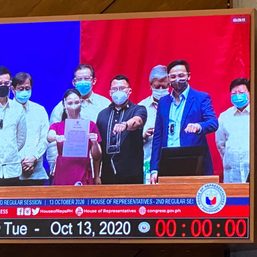
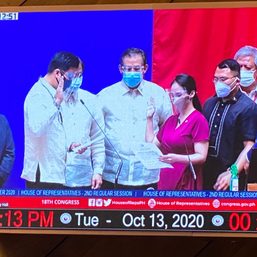
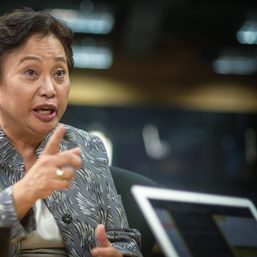
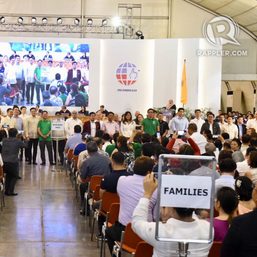

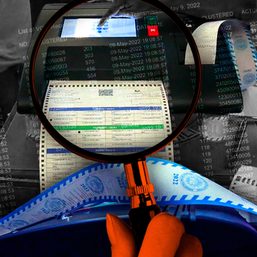
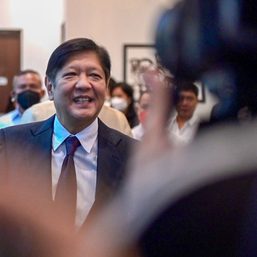
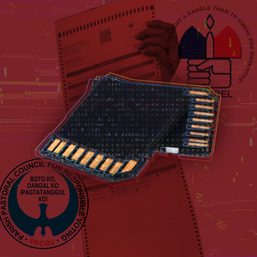
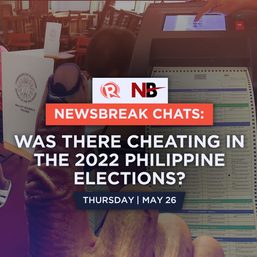
There are no comments yet. Add your comment to start the conversation.